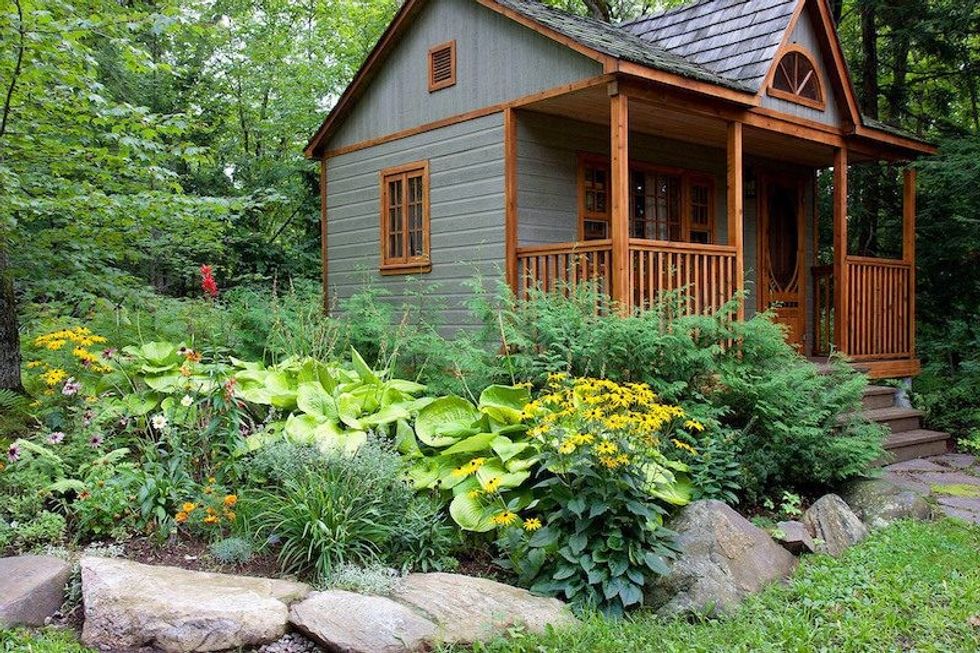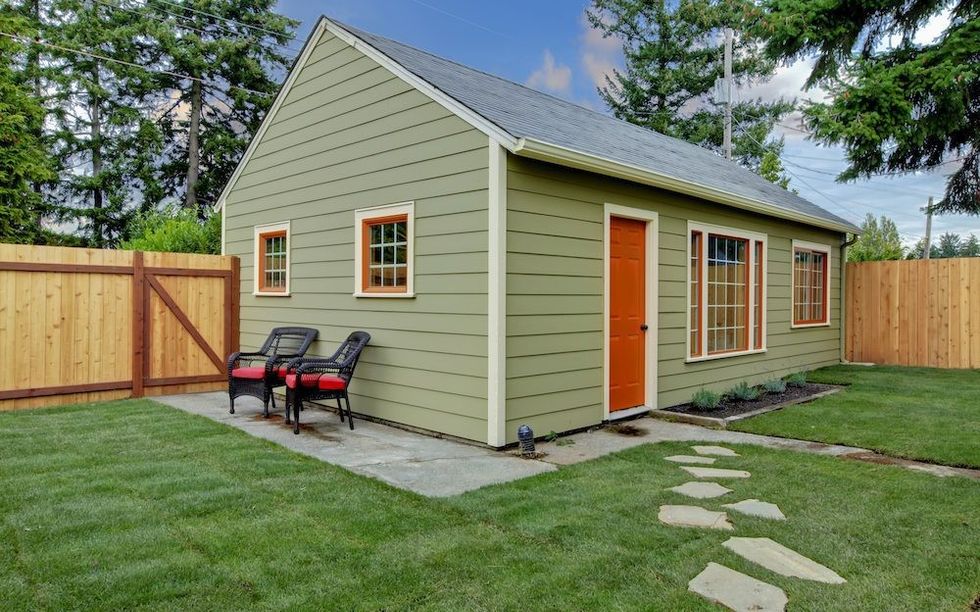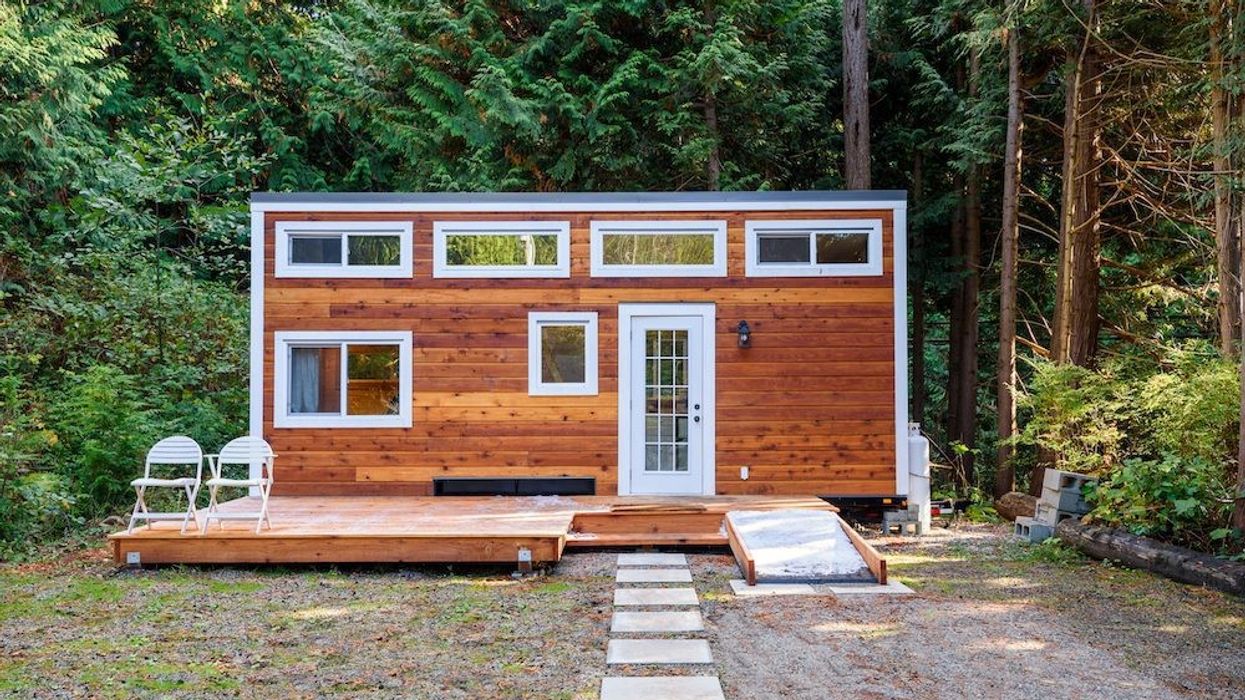A group of seven Toronto residents’ associations don’t want garden suites in their (or their neighbours’) backyards, thank you very much.
At least, they don’t want what they claim is a one-size-fits all approach that they say characterizes the City of Toronto’s recent decision to allow garden suites on properties of all types across the city.
In an attempt to add more desperately needed supply to the housing market, the City amended a zoning bylaw on February 2 that would allow Toronto residents to build a garden suite -- or secondary housing unit -- on their properties.
Prior to the changes, secondary suites were allowed only within a detached house, semi-detached house, or row house. Furthermore, only properties located next to a public lane were permitted to have an additional residential building or laneway suite. The new policies and zoning requirements would allow garden suites to be permitted on properties in most residential zones across Toronto. The report also adds the term “Garden Suites” to the definition of “infillhousing,” in Toronto Municipal Code Chapter 519.
For many, the move was celebrated and overdue. Not only do these homes increase residential supply, they may also help pay off sky-high mortgages thanks to their rental income-generating potential. Not to mention, they make it easier to care for aging Baby Boomer parents in their offer of a together-but-separate living quarters.

But not everyone is thrilled with the bylaw, which is yet to take effect. And the backlash will likely delay the materialization of this forward-thinking alternative housing form even further in Toronto -- even if garden suite-focused architectural firms are already busy working away at designing them.
Homeowner Associations Align to Block Bylaw
Building Better Neighbourhoods, a group representing a handful of residents organizations in Toronto, has submitted an appeal of the bylaw, as stated in a press release issued Tuesday. The concerned homeowners say that that the current, so-called “one-size-fits-all” approach to garden suites compromises green space protection and should be tailored to different neighbourhoods, rather than relying on a blanket approach.
The alliance includes Cliffcrest Scarborough Village SW Residents Association -- Scarborough district; Long Branch Neighbourhood Association --- Etobicoke and York district; Don Mills Residents Inc. -- North York district; South Armour Heights Residents' Association -- North York district; Bedford-Wanless Ratepayers Association -- North York district; Swansea Area Ratepayers' Association -- Toronto and East York district; and Confederation of Resident and Ratepayer Associations in Toronto (CORRA) -- all districts. More are expected to join.
In the release, the alliance argues that the City “clearly over-reached Provincial regulations that limit garden suites to single detached, semi-detached, and townhouses.” The alliance states that there is “neither legal authority, nor good planning arguments” to allow garden suites in zoning for Toronto’s multi-plexes and low-rise apartments without the development of appropriate standards.
"Residents' associations across Toronto have consistently supported community renewal, including affordable housing and garden suites, where the planning rules are clear, sensible, and sustainable; the City's current rules for Garden Suites are not," said Janet May, Cliffcrest Scarborough Village SW Residents Association, in the press release. "We believe the City's policy goal for rethinking Toronto's neighbourhoods must focus on improving and sustaining our communities for the long term benefit of homeowners and tenants, not destabilizing them to satisfy developers and speculators."
But Eric Lombardi of More Neighbours Toronto (MNTO), a volunteer-led pro affordable housing organization, says the various residents' associations were consulted about the zoning amendments, just like everybody else.
"It’s a classic case of NIMBYism. A bunch of NIMBY organizations came together to make an even bigger NIMBY organization because they lost the argument. They were consulted, but they seem to believe that 'consultation' is the same as 'getting everything we want,'" says Lombardi. "Shocking everyone, the city actually voted to do the right thing on garden suites (unlike with multi-tenant housing). In many ways, the proposed legislation is still too inflexible and will deter some homeowners from building Garden Suites. We wish the city went further and hope they do in the future with Expanding Housing Options in Neighbourhoods (EHON)."

Furthermore, according to the office of Steve Clark, Ontario's Minister of Municipal Affairs and Housing, municipalities are responsible for implementing the additional residential units (ARUs) provisions included in the Planning Act.
“Ontario has a severe shortage of housing supply, which is driving the cost of homes out of reach for too many hardworking Ontarians and their families. That’s why our government introduced More Homes, More Choice: Ontario’s Housing Supply Action Plan in 2019, in which we amended the Planning Act to require municipalities to adopt official plan policies and pass zoning by-laws that authorize additional residential units, previously known as second units, in the primary residential units (i.e., detached, semi-detached and row house) and in another building (ancillary building or structure) on the same property, such as above garages or in coach houses,” said Minister Clark’s Director of Communications and spokesperson Zoe Knowles to STOREYS.
“Municipalities are responsible for implementing the ARU provisions of the Planning Act. They also have flexibility in how they adopt ARU official plan policies and zoning by-law provisions and may tailor the application of provincial policy and legislation for ARUs to fit local circumstances. This should be identified in their official plan policies and zoning by-law provisions,” she continued.
Building Better neighbourhoods states that they welcome and support planned intensification, including garden suites, but that they must be tailored to the different circumstances of neighbourhoods and implemented with appropriate policies and standards.
Delaying Efforts to Improve Housing Supply
But, given the sorry state of Toronto on the supply front, there's no time to waste.
"Toronto is in a housing crisis and this appeal delays implementation of laws that will allow some homeowners and families to contribute new supply for rental options in neighbourhoods. They are delaying housing options for people in the middle of a housing crisis," says Lombardi. "It also bodes poorly for the potential of other necessary reforms, like ending exclusionary zoning via EHON. It demonstrates the challenge that bad-faith actors will pose to the reforms we all know are necessary to bring an end to the housing crisis."
Toronto's Deputy Mayor Ana Bailão says the appeal will indeed prolong the process of bringing garden suites to the market.
"Anything that potentially delays garden suites, as part of the Expanding Housing Options in Neighbourhoods initiative, delays our efforts to help to address housing supply in our City," said Bailão to STOREYS. "This would be the concern with any undertaking that delays this housing option."
As for the next steps, the City declined to comment. "As this matter is subject to a legal process it would not be appropriate to comment specifically on any action in this regards," said Bailão.
As for the existing zoning amendment, it's not exactly suggesting a frenzy on the construction of garden suites in the first place. The report outlines the rationale for the proposed separation distance between the main house and garden suite and its relationship to maximum permitted height. Issues related to privacy, shadowing, parking requirements, and protecting trees and green spaces are also addressed. The current report also includes a description of the monitoring process for garden suites and the requirement for reporting back to the committee after either the 200th permit for a garden suite has been issued or after two years, whichever comes first.
Now, what will come first is a likely tedious legal process, just when we were getting ahead. Here's to hoping to a speedy resolution so we can finally get more garden suites in Toronto backyards.





















